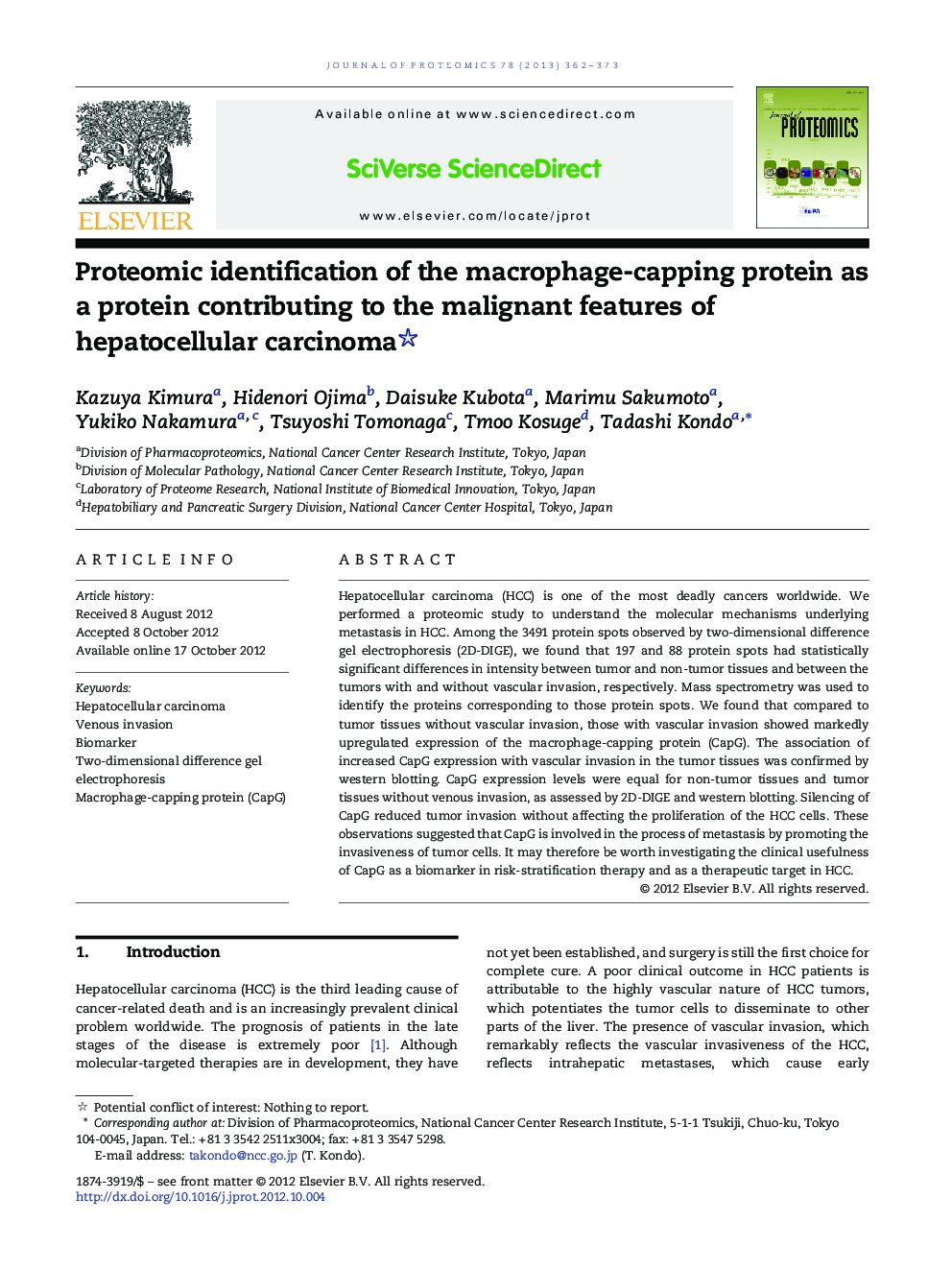| Article ID | Journal | Published Year | Pages | File Type |
|---|---|---|---|---|
| 1225590 | Journal of Proteomics | 2013 | 12 Pages |
Hepatocellular carcinoma (HCC) is one of the most deadly cancers worldwide. We performed a proteomic study to understand the molecular mechanisms underlying metastasis in HCC. Among the 3491 protein spots observed by two-dimensional difference gel electrophoresis (2D-DIGE), we found that 197 and 88 protein spots had statistically significant differences in intensity between tumor and non-tumor tissues and between the tumors with and without vascular invasion, respectively. Mass spectrometry was used to identify the proteins corresponding to those protein spots. We found that compared to tumor tissues without vascular invasion, those with vascular invasion showed markedly upregulated expression of the macrophage-capping protein (CapG). The association of increased CapG expression with vascular invasion in the tumor tissues was confirmed by western blotting. CapG expression levels were equal for non-tumor tissues and tumor tissues without venous invasion, as assessed by 2D-DIGE and western blotting. Silencing of CapG reduced tumor invasion without affecting the proliferation of the HCC cells. These observations suggested that CapG is involved in the process of metastasis by promoting the invasiveness of tumor cells. It may therefore be worth investigating the clinical usefulness of CapG as a biomarker in risk-stratification therapy and as a therapeutic target in HCC.
Graphical abstractFigure optionsDownload full-size imageDownload high-quality image (305 K)Download as PowerPoint slideHighlights► Proteins in tissue samples were examined for venous invasion in hepatocellular carcinoma. ► Expression of CapG in tumor tissues was associated with venous invasion. ► Silencing of CapG inhibited invasion without affecting proliferation of liver cancer cells.
